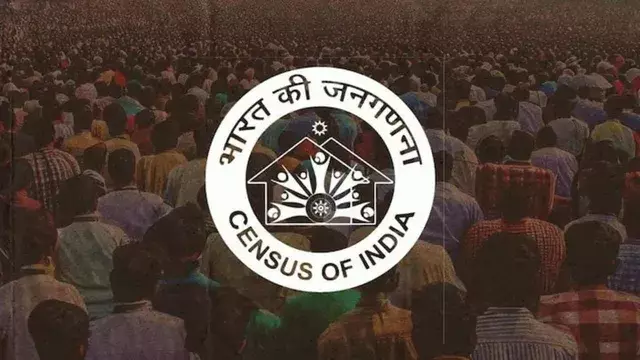- Courses
- GS Full Course 1 Year
- GS Full Course 2 Year
- GS Full Course 3 Year
- GS Full Course Till Selection
- Answer Alpha: Mains 2025 Mentorship
- MEP (Mains Enrichment Programme) Data, Facts
- Essay Target – 150+ Marks
- Online Program
- GS Recorded Course
- Polity
- Geography
- Economy
- Ancient, Medieval and Art & Culture AMAC
- Modern India, Post Independence & World History
- Environment
- Governance
- Science & Technology
- International Relations and Internal Security
- Disaster Management
- Ethics
- NCERT Current Affairs
- Indian Society and Social Issue
- NCERT- Science and Technology
- NCERT - Geography
- NCERT - Ancient History
- NCERT- World History
- NCERT Modern History
- CSAT
- 5 LAYERED ARJUNA Mentorship
- Public Administration Optional
- ABOUT US
- OUR TOPPERS
- TEST SERIES
- FREE STUDY MATERIAL
- VIDEOS
- CONTACT US
India's 2027 Digital Census Notified
India's 2027 Digital Census Notified

Why in the News ?
- The Union Home Ministry has officially notified that the next Census of India will be conducted in 2027, using digital tools for the first time.
- This notification marks the freezing of administrative boundaries until the exercise is complete.
Key Highlights:
- Census Year: Scheduled for 2027; reference date is 00:00 hours of March 1, 2027.
- Digital Mode: Census to be conducted through digital means using mobile applications.
- Enumerator Deployment: Around 34 lakh enumerators and supervisors to be deployed.
- Self-enumeration Provision: People may have the option for self-enumeration via digital tools.
- Boundary Freeze: No changes to administrative boundaries (states, districts, tehsils, police stations) will be allowed until the census concludes.
- Notification Issued: Under Section 3 of the Census Act, 1948 by the Registrar-General of India.
|
Census Act, 1948:
Who Conducts the Census?
Key Provisions: 1. Section 3 – Power to Conduct Census
2. Section 4 – Appointment of Census Officials
3. Section 5 – Duties of Citizens
4. Section 11 – Confidentiality of Data
5. Section 15 – Penalties
Importance of the Act
|
- Non-synchronous Areas: Census in Union Territories of Ladakh, Jammu & Kashmir, Himachal Pradesh, and Uttarakhand will have a reference date of October 1, 2026.
- Census Phases: The Census will be held in two phases:
- House Listing Operations: This is the first phase of the census, where every building and household is listed and numbered.
- Population Enumeration: This is the main phase of the census where details of individuals living in each household are collected.
- NPR (National Population Register): No official update/announcement on NPR this time, though it was notified in 2019 for updating.
|
About NPR:
|
- Security & Data Management:
- The ministry emphasizes data security for collection, transmission, and storage.
- Trial runs and pre-test exercises to evaluate effectiveness of digital tools and ensure enumerator training.
Challenges and Way Forward:
|
Conclusion:
The 2027 Census is an important step to collect updated data using digital methods. With proper planning, public trust, and strong coordination, the challenges can be managed, helping the government make better plans for the country’s future.
EnsureIAS Mains Question:Q. Discuss the significance of conducting the Census in India. What are the major challenges in implementing the 2027 Digital Census, and suggest measures to overcome them. (250 words) |
EnsureIAS Prelims Question:Q. With reference to the Census in India, consider the following statements:
Which of the statements given above is/are correct?
Answer: a Explanation: Statement 1 is correct: Census is conducted under the Census Act, 1948. Statement 2 is correct: Individual data is confidential and not used in court. Statement 3 is incorrect: NPR and Census are separate exercises under different legal frameworks.
|



